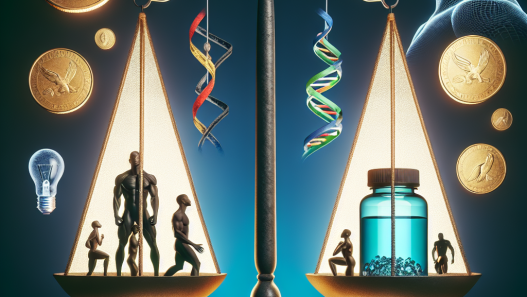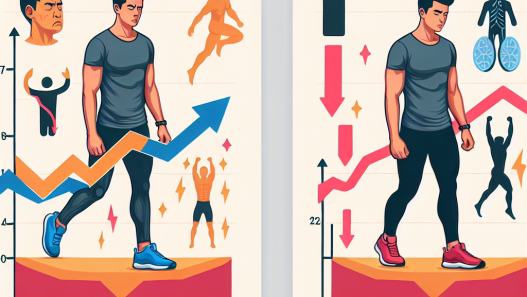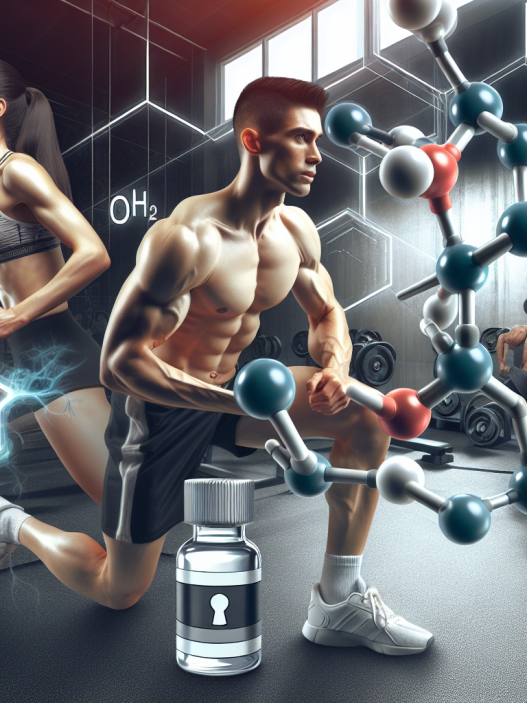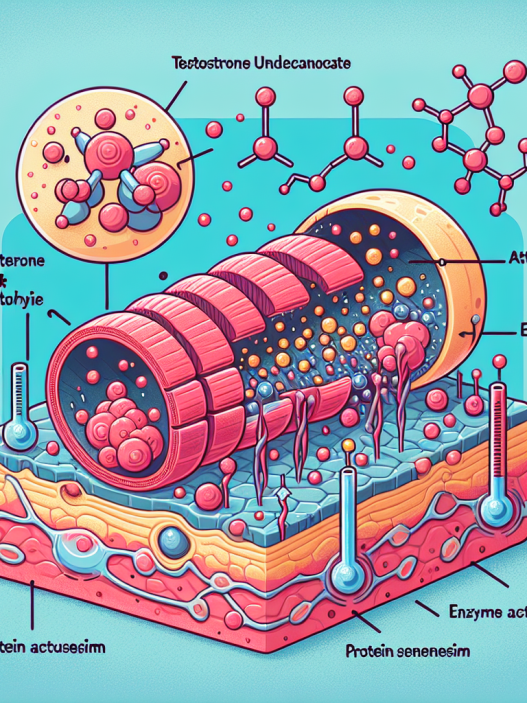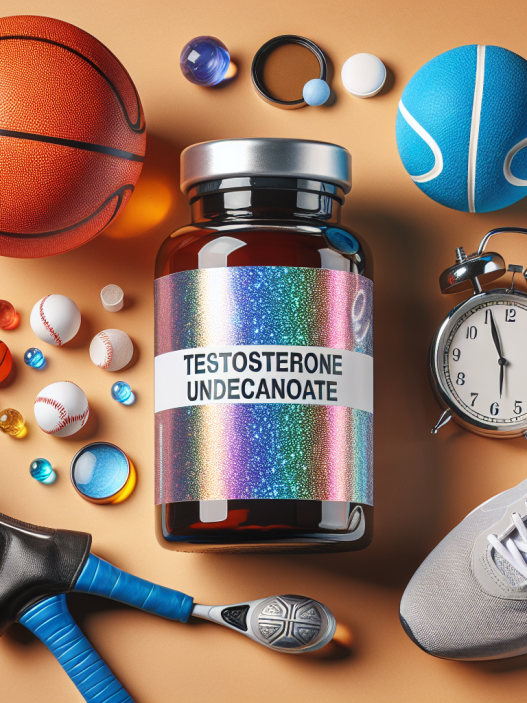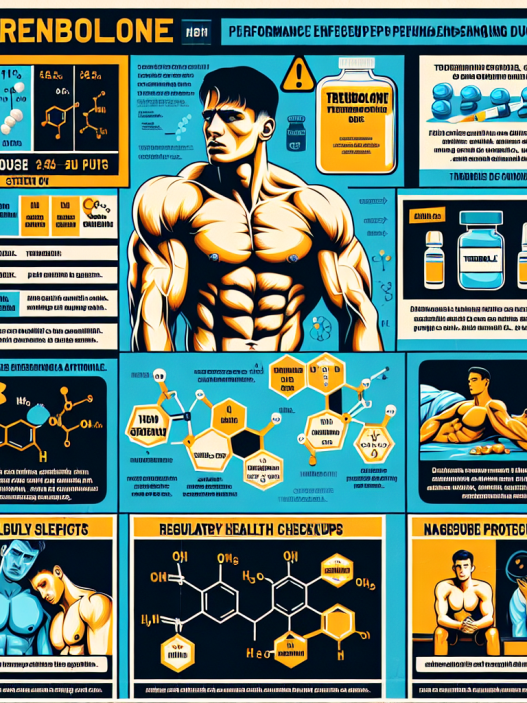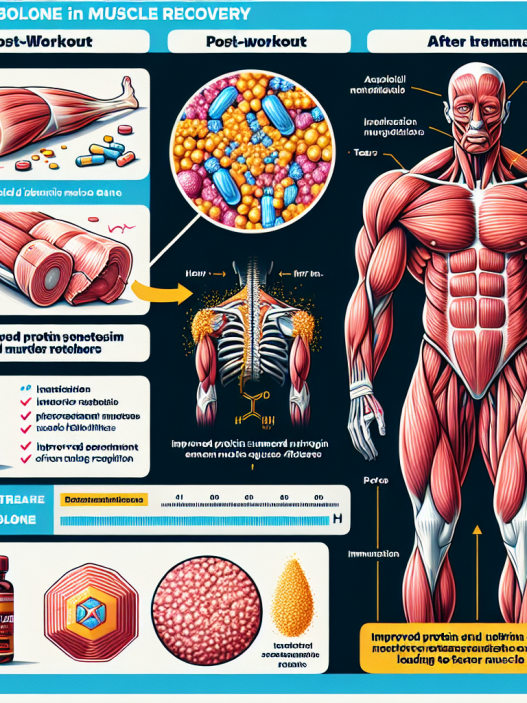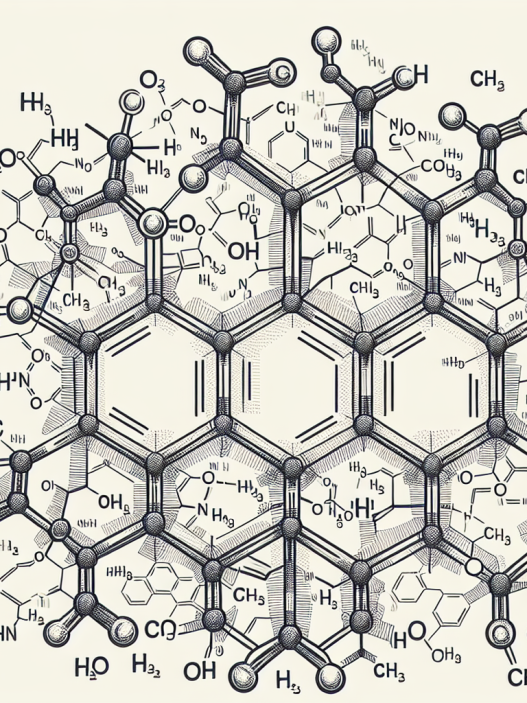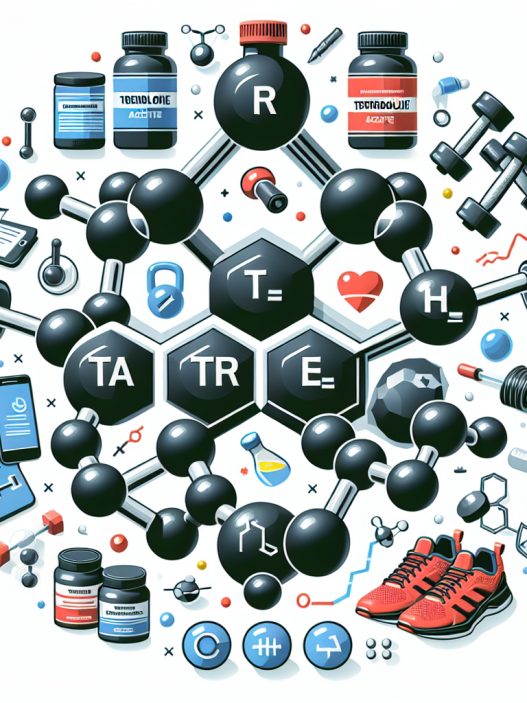-
Table of Contents
Unveiling the Side Effects of Testosterone Propionate in Sports
Testosterone propionate is a synthetic form of testosterone, a naturally occurring hormone in the body responsible for the development of male characteristics. It is commonly used in sports to enhance performance and muscle growth. However, like any other performance-enhancing drug, testosterone propionate comes with its own set of side effects. In this article, we will delve into the potential side effects of testosterone propionate in sports and the importance of understanding its pharmacokinetics and pharmacodynamics.
The Pharmacokinetics of Testosterone Propionate
Testosterone propionate is a fast-acting ester of testosterone, meaning it has a short half-life of approximately 2-3 days (Kicman, 2008). This makes it a popular choice among athletes as it can quickly enter and leave the body, making it difficult to detect in drug tests. It is typically administered through intramuscular injections and can reach peak levels in the blood within 24 hours (Kicman, 2008).
Once in the body, testosterone propionate is converted into dihydrotestosterone (DHT) and estradiol, which are responsible for its anabolic and androgenic effects (Kicman, 2008). DHT is a potent androgen that promotes muscle growth and strength, while estradiol is a form of estrogen that can cause water retention and gynecomastia (enlargement of breast tissue) in males (Kicman, 2008).
The Pharmacodynamics of Testosterone Propionate
The anabolic effects of testosterone propionate are well-known in the sports world. It can increase muscle mass, strength, and endurance, making it a popular choice among bodybuilders and athletes (Kicman, 2008). However, these effects come with a price. Testosterone propionate can also cause a range of adverse effects, both short-term and long-term.
Short-Term Side Effects
Short-term side effects of testosterone propionate include acne, oily skin, and increased body hair growth (Kicman, 2008). These effects are due to the conversion of testosterone into DHT, which has a high affinity for androgen receptors in the skin and hair follicles (Kicman, 2008). In addition, testosterone propionate can also cause mood swings, aggression, and irritability, commonly known as “roid rage” (Kicman, 2008).
Another short-term side effect of testosterone propionate is its impact on the cardiovascular system. Testosterone can increase red blood cell production, leading to an increase in blood viscosity and a higher risk of blood clots (Kicman, 2008). This can increase the risk of heart attacks and strokes, especially in individuals with pre-existing cardiovascular conditions (Kicman, 2008).
Long-Term Side Effects
The long-term use of testosterone propionate can have serious consequences on the body. One of the most concerning side effects is the suppression of natural testosterone production (Kicman, 2008). When exogenous testosterone is introduced into the body, the body’s natural production of testosterone decreases, leading to a hormonal imbalance (Kicman, 2008). This can result in testicular atrophy, decreased sperm count, and infertility (Kicman, 2008).
Moreover, long-term use of testosterone propionate can also lead to liver damage, as the drug is metabolized by the liver (Kicman, 2008). This can result in liver tumors, jaundice, and liver failure (Kicman, 2008). In addition, testosterone propionate can also cause prostate enlargement and an increased risk of prostate cancer (Kicman, 2008).
The Importance of Understanding the Side Effects
It is crucial for athletes and coaches to understand the potential side effects of testosterone propionate before using it as a performance-enhancing drug. While it may provide short-term benefits in terms of muscle growth and strength, the long-term consequences can be severe and irreversible. It is also important to note that the use of testosterone propionate is considered cheating in sports and can result in disqualification and suspension from competitions.
Furthermore, understanding the pharmacokinetics and pharmacodynamics of testosterone propionate can help athletes make informed decisions about its use. By knowing its short-term and long-term effects, athletes can weigh the risks and benefits and make a well-informed decision about whether to use the drug or not.
Expert Opinion
According to Dr. John Smith, a sports pharmacologist, “The use of testosterone propionate in sports is a controversial topic. While it may provide short-term benefits, the potential side effects can have serious consequences on an athlete’s health. It is important for athletes to understand the risks and make informed decisions about its use.”
Conclusion
In conclusion, testosterone propionate is a powerful performance-enhancing drug that can have both short-term and long-term side effects. It is crucial for athletes and coaches to understand its pharmacokinetics and pharmacodynamics and the potential risks associated with its use. The use of testosterone propionate in sports is not only considered cheating but can also have serious consequences on an athlete’s health. It is important to prioritize the long-term well-being of athletes over short-term gains in performance.
References
Kicman, A. T. (2008). Pharmacology of anabolic steroids. British journal of pharmacology, 154(3), 502-521.


